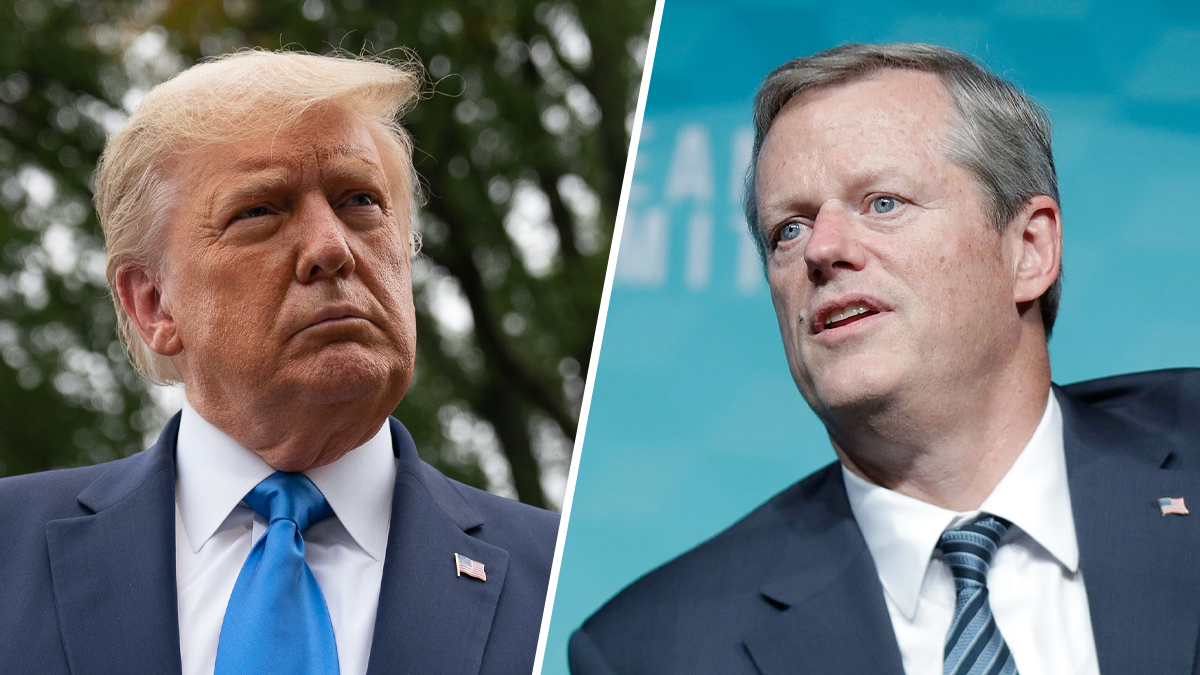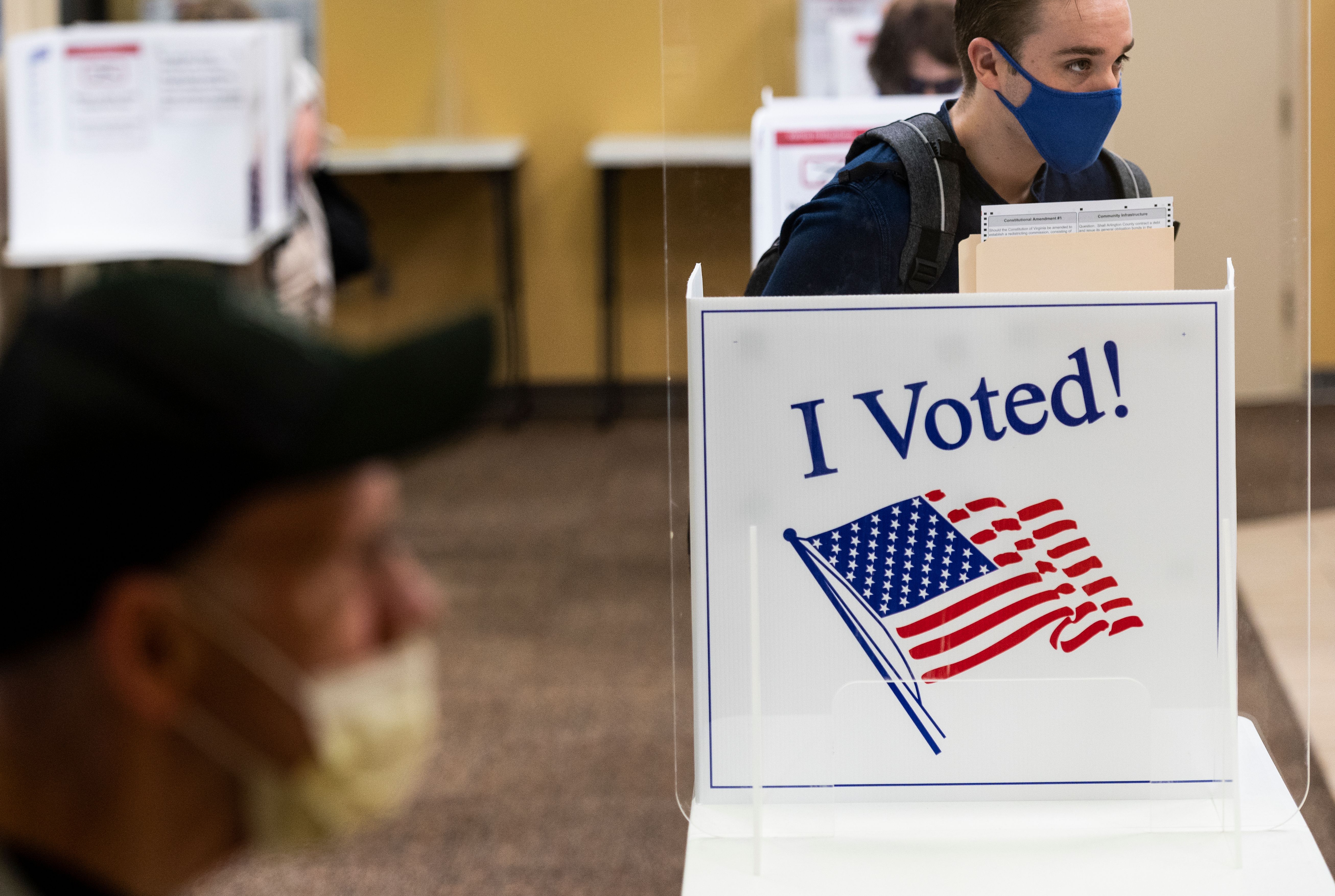As Massachusetts residents prepare to vote in the Nov. 3 elections, there will be more to decide on than just who should be commander-in-chief.
Two ballot questions will go before residents when they cast their votes -- whether in person on Election Day, by mail or early voting -- according to the state's 2020 official Information for Voters booklet.
Question 1, if passed, would change the state’s "Right-to-Repair" law, while Question 2 would create a ranked-choice voting system in Massachusetts.
Here's what you need to know about each before casting your ballot.
Get top local stories in Boston delivered to you every morning. Sign up for NBC Boston's News Headlines newsletter.
Question 1
The first ballot question seeks to expand the state's 2013 "Right-to-Repair" law, which allows independent mechanics to access data from a car's computer system so they can find and fix problems.
If passed, the law would give mechanics broader access to telematics data -- mechanical data collected from a vehicle and wirelessly transmitted to a remote server.
Starting with model year 2022, the proposed law would require manufacturers of motor vehicles sold in Massachusetts to equip any vehicles that use telematics systems with a standardized open access data platform.
Filed by a group known as the Right to Repair coalition, its supporters claim if it doesn't pass, people won't be able to take their cars to independent repair shops and be forced to pay more at dealerships.
"We need to update the law for new technology to make sure that consumers can continue to get their cars fixed where they want," said Tommy Hickey, director of the Right to Repair Coalition.
A group formed in opposition to the initiative, the Coalition for Safe and Secure Data, argues the law would create cybersecurity threats and expose personal data. They also argue the current law, overwhelmingly approved by voters in 2012 and later amended, already accounts for technological advances and doesn’t need to be changed.
"There's nothing in here -- in the ballot question -- that talks about cybersecurity, that talks about data protection or personal safety," Coalition for Safe and Secure Data spokesman Conor Yunits said. "It takes all the information from all these cars and it puts it in one central cloud database that is really going to be a magnet for bad actors, for hackers."
But technological advances have fundamentally changed cars, according to Bryan Reimer, a research engineer at the MIT Center for Transportation and Logistics, and mechanics are struggling to adapt to the "radical shift."
"Imagine taking your smart phone to anyone who can change around the software," Reimer said. "Someone might replace the glass, but I wouldn’t imagine replacing the processors. Well, what is a car today, unfortunately, in many ways, is closer to a smart phone than it is to the whole mechanical system of 1980."
Ari Trachtenberg, a professor of Electrical and Computer Engineering at Boston University, said the proposal pits car manufacturers against auto service companies such as AutoZone in multi-million dollar campaigns.
"Two sides are battling for access to your data -- the auto manufacturers, who want to maintain access to potentially lucrative and private telematics data, and a collection of auto service companies, who want to level the playing field by making this data more broadly accessible," Trachtenberg said.
The question has raised concerns among federal officials.
In July, Jesse Owens, the National Highway Traffic Safety Administration's deputy administrator, penned a letter to lawmakers warning the measure would prevent manufacturers from complying with federal cybersecurity guidelines.
“This whole topic being pushed in Massachusetts is not a Massachusetts issue - it’s a federal issue related to safety and cybersecurity," Reimer said, arguing that vehicle safety regulation belongs under the purview of the federal government.
Hickey, of the Right To Repair Coalition, countered that the warning from the NHSTA came a day before a scheduled meeting with the group. Hickey also noted there have been attempts to pass similar legislation at the federal level, but to no avail.
Question 2
With Question 2, voters have the option of establishing a “ranked-choice” system, which involves ranking candidates on the ballot in order of their preference.
If a candidate garners a majority of first-place votes, that candidate wins. If no candidate receives a majority of the first-choice votes, the candidate with the fewest votes would be eliminated. Voters who ranked the eliminated candidate as their first choice would have their vote count instead for their second choice.
The process repeats until one candidate receives a majority of the vote and wins.
"The upside is that it's more equitable," Democratic strategist Scott Ferson said. "The downside to it is, it’s complicated."
The system runs the risk of a vote being "wasted," Ferson noted, if someone only votes for one candidate who ultimately receives the fewest votes -- since that candidate would be eliminated. This proves particularly problematic if a voter doesn't recognize any other names on the ballot.
"You have to be more informed to be able to take full advantage of ranked-choice voting," Ferson said.
Supporters of the initiative argue that the goal is to eliminate the so-called "spoiler effect" by making sure no candidate wins without a majority of votes.
Ferson pointed to the race for Massachusetts’ 4th Congressional District as an example. The field of candidates was packed with nine Democrats vying to fill the seat being vacated by Rep. Joe Kennedy III, who unsuccessfully challenged Sen. Ed Markey in the state primary this year. After more than two days of counting votes in a tight race, ex-Marine Jake Auchincloss was declared the winner with less than 23% of the vote.
"The idea is to get to what the majority wants," Ferson said. "Ranked-choice voting helps eliminate the possibility that somebody who doesn’t achieve the plurality wins the seat."
The new system would apply to future state and federal elections and primaries in Massachusetts. A similar system is currently used by the Cambridge City Council.
Maine became the first U.S. state to adopt the system in primary elections last year.
The Associated Press and the State House News Service contributed to this report.



